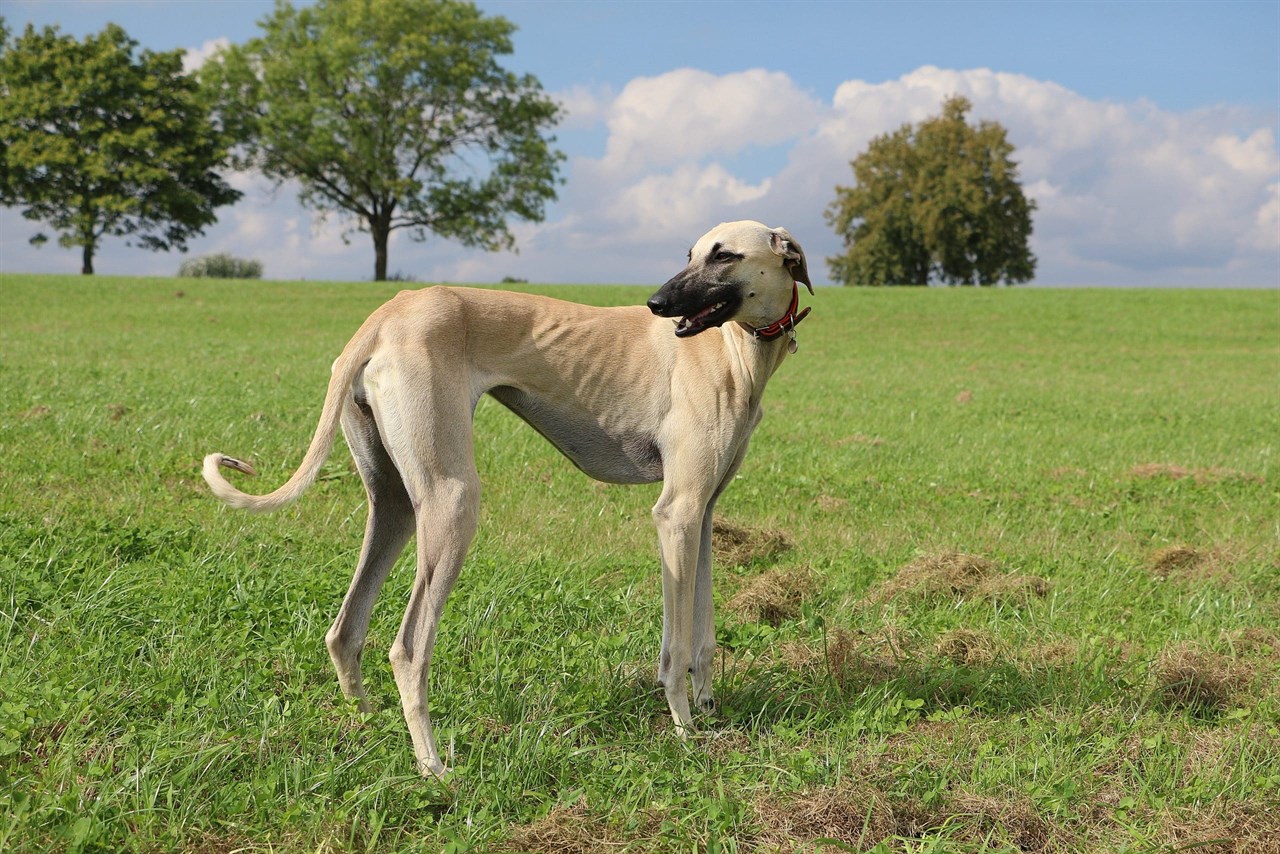Common Health Issues of the Sloughi: Vigilance for Wellness

The Sloughi is generally a healthy breed with a long lifespan. However, like all dog breeds, they may be prone to certain health issues. Responsible breeding practises, regular veterinary care, and awareness of breed-specific concerns are essential for maintaining the well-being of your Sloughi. Here are the common health issues of Sloughi.
Bloat (Gastric Torsion)
Sloughis, like many deep-chested breeds, are at risk of bloat. This condition involves the stomach filling with gas and twisting, which can be life-threatening. Immediate veterinary intervention is necessary if bloat is suspected.
Hip Dysplasia
Hip dysplasia is a hereditary condition where the hip joint does not develop properly. It can lead to arthritis and lameness. Responsible breeders screen for hip dysplasia to reduce its occurrence.
Eye Conditions
Sloughis may be susceptible to various eye conditions, including progressive retinal atrophy (PRA), cataracts, and entropion (inward rolling of the eyelids). Regular eye examinations by a veterinarian can help detect and manage these issues.
Autoimmune Diseases
Some Sloughis may be prone to autoimmune diseases like autoimmune haemolytic anaemia (AIHA) or immune-mediated thrombocytopenia (ITP). These conditions involve the immune system mistakenly attacking the body's own cells.
Dermatologic Conditions
Sloughis may occasionally experience skin issues, including allergies, hot spots, and pyoderma. Regular grooming and proper care can help prevent and manage these conditions.
Heart Disease
Some Sloughis may be predisposed to heart conditions such as dilated cardiomyopathy. Regular cardiac screenings can help detect heart issues early.
Hypothyroidism
Hypothyroidism, a thyroid gland disorder, can occur in Sloughis. It can lead to weight gain, lethargy, and skin problems. Thyroid function tests can diagnose and manage this condition.
Elbow Dysplasia
Elbow dysplasia is another developmental joint disorder that can affect Sloughis. Responsible breeders screen for this condition to reduce its prevalence.
Are Sloughi hypoallergenic?
No, Sloughis are not considered hypoallergenic. Hypoallergenic breeds are those that produce fewer allergenic proteins in their saliva, skin, and urine. Sloughis, like most dog breeds, do not fall into this category, and they can still trigger allergies in sensitive individuals. It's essential to consider potential allergies when bringing any dog into your home and to consult with an allergist if you have concerns. Regular grooming and cleaning can also help reduce allergen levels in your living space.